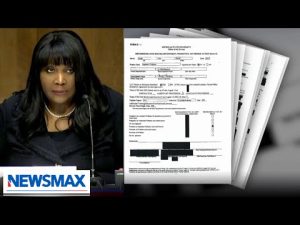In recent discussions surrounding global politics, one name stands out for his provocative views: Alexander Dugin. A prominent Russian political theorist, Dugin is making waves with his ideas about a new Russian Empire, which he envisions as the ultimate opponent of the United States. With Dugin actively promoting this vision, it’s clear that the stakes in international relations are higher than ever, especially for America. His embrace of a multipolar world raises critical questions about the future of U.S. foreign policy and global stability.
Dugin explicitly positions the United States as a “common enemy.” This view is not just a casual remark; it reflects a broader ideological battle. He suggests that the antidote to what he perceives as the evils of the West is a resurgent Eurasian Empire with Russia in the driver’s seat. This aggressive narrative indicates a significant threat not just to American interests, but to traditional values upheld by democratic nations worldwide. If Dugin’s vision is allowed to influence Russian policy, it could lead to bold territorial ambitions that undermine the framework of international order.
Moreover, Dugin’s arguments delve into a criticism of modern democracy itself. He paints a picture of totalitarianism disguised as progressivism, arguing that society is no longer about freedom of choice but rather about an obligation to conform to a certain worldview. This prescriptive stance is alarming. It suggests that dissent against progressive norms is not merely discouraged but treated as a failure to fulfill a duty. In contrast, America’s commitment to individual freedoms stands as a stark reminder of what is at stake: the right to think, express, and engage in diverse opinions is fundamental to our national identity.
Dugin surprisingly finds common ground with the American isolationist wing. He argues that if the U.S. opts to retreat from global responsibilities, it inadvertently empowers Russia’s ambitions. This isolationist viewpoint, while appealing to some, could normalize the idea that great powers like Russia should have free rein over their spheres of influence without accountability to the global community. America’s retreat would send a signal that such expansionism is acceptable, igniting further conflicts and potentially encouraging disruptive policies that threaten global peace.
The current geopolitical climate emphasizes the need for America to remain engaged and vigilant. A disengaged United States may feel like a comforting retreat for some, but in reality, it diminishes our power to influence positive change and maintain stability. As the scenarios unfold on the world stage, the implications of ignoring Dugin’s rhetoric could lead to a future where aggressors feel emboldened. The world is watching, and America must continue to champion democratic values and uphold its role as a leader, standing firmly against threats to liberty and freedom—both at home and abroad.
In conclusion, the ideological clash with figures like Dugin serves as a crucial reminder that America’s global leadership is essential in shaping a more stable and just world. While there’s a compelling case for examining our foreign policy, any retreat could empower adversaries and risk the freedoms we hold dear. Just as one doesn’t leave the front door unlocked at night, it’s imperative that the U.S. keeps its commitment to standing guard against those who wish to dismantle the very foundations of democracy. The challenge ahead is significant, but by remaining engaged, America can ensure that its values endure, even against the backdrop of rising tides of totalitarianism and aggressive nationalism.







